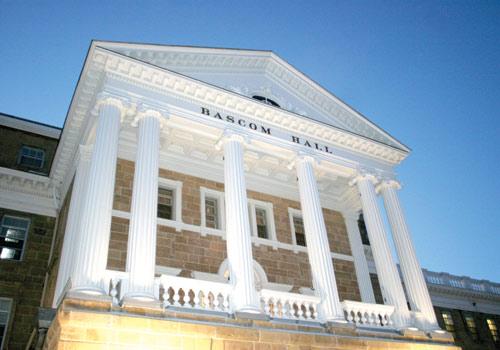In addition to state budget cuts, the COVID-19 pandemic caused unprecedented economic impacts to University of Wisconsin System campuses.
University of Wisconsin Assistant Vice Chancellor for Government Affairs Ben Miller said previous economic downturns impacted parts of the university’s budget, but in the pandemic, all of UW-Madison’s auxiliary budgets — including entities like housing and dining, the Wisconsin Union and athletics — suffered.
“This pandemic has hit all of those streams of revenue significantly and all at the same time,” Miller said. “Our response to that has had to be swift and comprehensive.”
COVID-19 caused a multitude of businesses in Wisconsin to close, which made the state’s revenues less robust and contributed to UW-Madison’s $20 million budget cut last year and its $19 million cut this year.
UW not affected by international drop in college applications, sees record 17% increase
Miller said UW’s response to the pandemic included freezing salaries in most hiring, eliminating most travel and implementing furloughs and salary reductions. Miller said all UW System schools experienced financial strife, but because UW-Madison is the largest university in the system, the pandemic’s impact was outsized.
Associate Professor of Linguistics at UW-Milwaukee and President of the Wisconsin Conference of the American Association of University Professors Nick Fleisher said UW-Madison is better equipped than other UW System schools to adapt to austerity.
“UW-Madison, because of its size and stature, is able to attract students from out of state and internationally in ways that other campuses in the system can’t,” Fleisher said. “Because it’s able to charge much higher tuition for out-of-state students … in general, UW-Madison has been able to increase tuition revenue in ways that other campuses really can’t.”
Fleisher said funding cuts to the UW System within the last decade fell much harder on smaller schools around the state. The disparity between UW-Madison and other campuses in their ability to adapt and insulate themselves from economic impact is problematic because it incentivizes the state legislature and governor to cut funding for the entire UW System, Fleisher said.
Fleisher said he believes UW-Madison tends to stand in for the whole system in the way Wisconsinites talk and write about its entirety because Madison is by far the most visible campus.
“If UW-Madison isn’t doing so badly under austerity … that’s dangerous for everyone else in the system because it means that those austerity measures which really are quite dangerous and damaging for those other campuses are less likely to get wide notice,” Fleisher said.
Fleisher said he understands why UW-Madison is a focal point for state, claiming the university serves as a powerful symbol through its prominence in sports and its alumni network.
Miller said UW-Madison’s physical footprint extends beyond Madison and Dane County through its extension offices and agriculture research stations across Wisconsin. Much of UW’s research involving dairy and agriculture is directly tied to industries which drive the state’s economy, Miller said.
“[UW-Madison] is a catalyst for economic activity,” Miller said. “We attract investment from students coming from all over the world and companies that want to do partnership with research and then we take those revenues and we’re a catalyst of economic activity across the entire state.”
According to UW’s Feb. 2021 Economic Impact study, the university contributed $30.8 billion annually to Wisconsin’s economy. UW supported over 232,000 jobs and generated $1 billion in local and state taxes, according to the study.
The study also found over 400,000 alumni are active worldwide and 173,000 alumni currently work in Wisconsin.
Badgers United aids UW amid $320 million in financial losses
Fleisher said UW’s strong alumni network includes prominent individuals who have resources to lobby the legislature.
“I think [the heavy emphasis on UW-Madison] also risks really masking some of the bad effects of that specific policy goals might have for campuses, students and families at other campuses in the system,” Fleisher said.
Fleisher said in his view, a potential solution to austerity is to increase public funding for the entire system by ensuring the state will provide more money to offset the funding lost from tuition freezing.
A number of groups across the state support “Fund The Freeze,” a plan to fund the tuition freeze keeping college affordable and accessible for more students and families, Fleisher said.
Fleisher said funding the freeze supports the UW System, its operations and its statewide presence of the state as a public good.
“In recent years, there have been really acute budget crises at a number of campuses around the state — Superior, Stevens Point, Parkside — there’s a lot of examples,” Fleisher said.
Fleisher said UW leadership floated the idea of program consolidation and eliminating certain programs at the universities, but he hopes the UW System will do the opposite.
Fleisher said he views the central idea behind the UW System is a goal to bring the UW education, values and mission to residents in all corners of the state. Fleisher said one way the UW System reaches Wisconsinites is through its presence on campuses all over the state.
“You want to keep things in place and meet people where they are everywhere in Wisconsin,” Fleisher said. “That’s what the UW System has done traditionally really well and that’s what we need to restore and get back to.”













